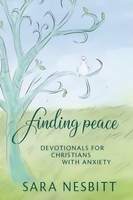I’m tired, y’all. This pandemic is dragging forever, and people are just ugly. A new friend used the term “pandemic exhaustion.” Maybe I’m late to the game. Maybe it’s talked about more in her church than mine. Whichever, this was the first time I remember hearing that term. I suspect “pandemic fatigue” crossed my consciousness once or twice, but exhaustion captures what we’re all feeling more than fatigue does.
Truth to tell, I think I’ve been exhausted by all the ugliness since 2016. It was less bad then. Like many of my friends and relatives, I thought the election and everything leading up to it was fine drama. Some people allowed their ugliness to show through then. One person offered scathing vitriol against everyone who had voted for the winner, little acknowledging or caring that good people had their own reasons for voting as they had. (Focusing on a single issue or two drives me nuts, but that’s how some people vote.) I thought maybe that was the worst I’d have to be exposed to, but no such luck.
When March 2020 hit and this novel Covid-19 virus that had been “over there” showed up “over here,” we thought it’d be over with fairly quickly. We heard all about “flattening the curve,” leading to the belief that if we did everything right, we could make this new enemy go away. Only, it didn’t. The curve went up and plateaued, then down and plateaued, then back up. Every time it’s gone down, society becomes a maskless, gathering free-fot-all, and the curve goes back up. Am I the only one who doesn’t see the relationship here? I know I’m not the only one who thinks that keeping mask mandates in place for an additional two months after cases drop isn’t the worst idea in the world. After all, if something’s working, why stop doing it?
Now it’s almost two years later. People have been acting out in person and on social media. The vitriol hasn’t abated. If anything, it’s gotten worse. My friend and I were talking about this, and that’s when “pandemic exhaustion” entered the conversation.
Masking. Social distancing. Quarantining. Not seeing loved ones. Understanding the germaphobia of TV detective Adrian Monk. Manic hand washing. Students being sent home when a classmate tests positive for Covid. Parents having to adjusts their whole lives–not just suddenly working from home, but also having to be present to children while they, too, are at home. Disorientation. Confusion. Uncertainty of who to trust.
In addition to these issues, any one of which by itself can send someone into a crisis state, there’s also people struggling with previously existing mental health problems. Suicide rates went up. People with depression got worse. Anxiety went through the roof. I spent the first three months in survival mode, fighting constantly to keep anxiety at bay and also helping one daughter as she struggled with college classes that suddenly went online and crying with my other daughter as activity after activity disappeared from her year.
After all this time–over five years at this point–will we be able to recognize the end of the exhaustion? Will we be able to feel when the crisis has abated? When all the health officials have determined that the pandemic has either passed or become endemic, will we be able to trust them? I wonder if ugliness is the new normal or if the end of the pandemic will mark a reset to the way people treat each other?
Even nice, compassionate people are struggling. I’ve watched marriages dissolve. People who believe that the lives of our friends of different shades of brown, those of our friends in the LGBTQIA community, and the lives of the vulnerable in our society (those most susceptible to dying from Covid) fight and advocate. We celebrate the little victories, like guilty verdicts handed down in the lynching murders of innocent Black men. We mourn the hospitalizations and deaths of children who are too young for vaccines. We feel angry at continued systems of oppression and injustice. And it doesn’t seem ever to stop.
When this is over, when our society and culture gets whatever our reset will look like, the compassionate people will still be compassionate. We’ll be a bit scarred, a bit battle-weary and -hardened, but compassion was our trademark before the pandemic and it will still be who we are coming out of it. If anything, our compassion has had opportunities to grow in the moments between the struggles.
Those who have allowed anger and vileness to become their modus operandi will remain angry and vile, though hopefully less so. Crises show us who we really are, and the past five years, and especially the last two, have ripped the masks off of many people, allowing everyone to see them for who they really are. Then there are the few others. These are the people who were angry and could be easily manipulated because of their own anger but who woke up. They had a figurative bucket of cold water splashed over them, and they realized that their anger and vitriol had been hurting them and don’t want that for themselves anymore. These folks are likely to leave ugliness behind. Maybe they’ll join the compassionate. Who knows?
If you’re reading this and you’re identifying with the exhaustion–exhaustion with the ongoing pandemic, ugliness, struggles–know you’re not alone, though it can certainly feel like it. Keep playing it safe and kind. Create space for exercise at least four days a week, even if it’s nothing more than taking a 20-minute walk. Develop a habit of mindfulness where you can find silence around and within you. Talk to someone; nurture those close relationships. (I’ve found that in talking to friends, I learn that our struggles are similar, so we can be servants to each other.)
And most of all… Theme for 2022… Be kind to yourself.

